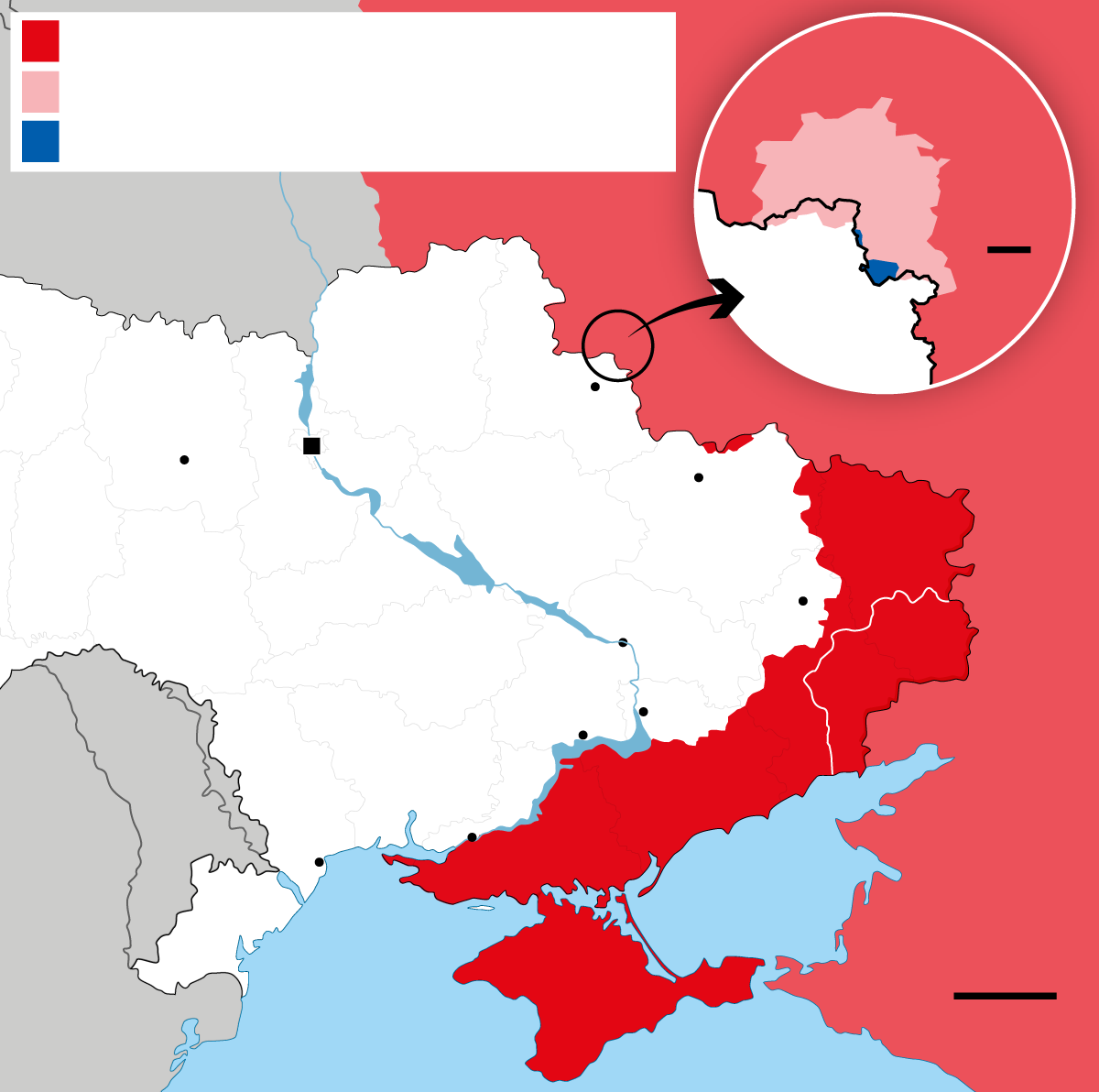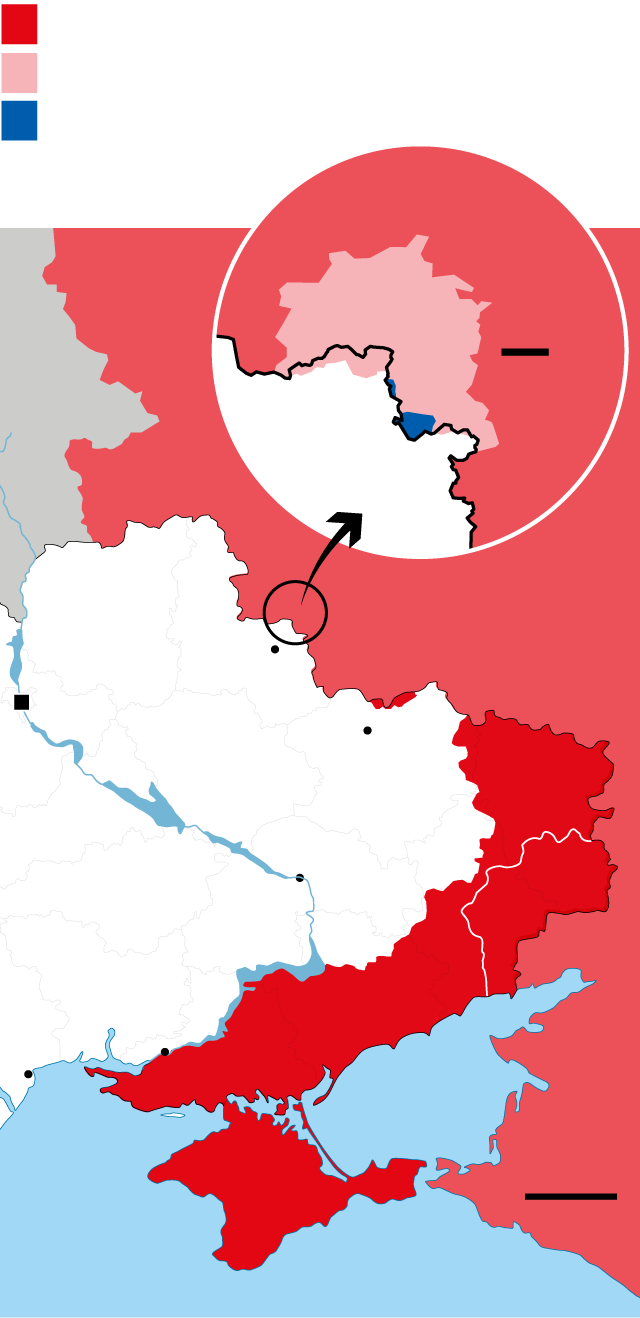The data contradicts Putin: progress in Ukraine is slower than he claims.
Despite the Kremlin's triumphalism, Russia has not conquered so little territory in a month since last June.


MoscowVladimir Putin has repeatedly stated in recent days that things are going very well for the Russian army "on all fronts" and that "along the entire combat line" his troops "hold the strategic initiative, are gaining strength, and are acting with increasing effectiveness." In fact, Donald Trump has even claimed that Russia was "crushing" Ukraine. to try to convince Volodymyr Zelensky of the need to negotiate a ceasefire. Now, the reality on the battlefield is very different.
The DeepState military monitoring project has assessed the territorial gains made by Moscow's troops during the month of March and found that they have not conquered so little ground in eastern Ukraine in thirty days since June of last year. The data, confirmed by the independent Russian newspaperAgentstvo, show how the Russian army has occupied 130 kilometers during the last four weeks, a far cry from the 725 it came to dominate in November. Since then, the momentum of the Russian advance has been decreasing month after month.
Putin's soldiers are progressing on most of the eastern fronts, but not at the pace proclaimed by their president. Last Thursday, he himself gave employment percentages for the Ukrainian provinces he claims, and they have remained unchanged for months: 99% in Lugansk, and more than 70% in Donetsk, Kherson, and Zaporizhia.
Among the reasons for this "slowdown," in the words of military expert Ian Matveyev inAgentstvo, there is "a lack of equipment and personnel, and the low quality of reinforcements." Furthermore, he adds, "the Russian army is suffering from logistical problems." Another analyst, Kirill Mikhailov, points to "the continued depletion of the armored vehicle fleet" and "the improved tactical use of drones by Ukrainian forces" as one of the factors.
In fact, Russian war bloggers themselves acknowledge problems for their defenses due to dronesFor example, in Toretsk, a city in Donetsk recaptured by Moscow in early February after three months of fighting, Russian analyst Boris Rozhin admits that "enemy drones remain a major problem" and that "the situation is difficult, but under control." Some 90 kilometers to the northeast, Kiev troops have also managed to halt the Russian offensive in Pokrovsk, one of the most intense in recent months.
Kursk, brake and push
In March, much of the Kremlin's efforts have focused on expel Ukrainian soldiers from the Russian Kursk region. According to DeepState, at the beginning of the month Ukraine controlled 407 square kilometers and now it barely dominates 70. Putin has tried to sell this success (repelling after seven months the first foreign incursion into Russian territory since World War II) as an unassailable triumph that had appeared by surprise to the surprise post surrounded in the area. This information, denied by Kiiv and by military analysis groups such asthink tankInstitute for the Study of War (ISW), has been released by Trump in yet another example of his receptiveness to Russian propaganda.
The Kursk push has emboldened the Russian president, who now understands that he must further prolong talks with the United States to try to gain ground on the front, aware that his troops are no longer advancing at the desired speed. In the midst of negotiations for a ceasefire, Russia launched more drones during March than in any other month of the war, 4,198, and recruited the highest number of men for military service since 2011, 160,000.
Likewise, Moscow has continued to denounce the alleged repeated breaches of the energy truce by Kiev"Russia has submitted a list of Ukraine's violations to the United States, the UN, and the OSCE," Russian Foreign Minister Sergei Lavrov explained on Tuesday. However, independent military analysts have found no evidence of these attacks.
According toThe Moscow Times, a Russian opposition newspaper, the stagnation of the offensive in the occupied territories is behind Putin's strategy of insisting on Zelensky's illegitimacy. Kremlin sources acknowledge to this newspaper that the goal of militarily controlling the four provinces annexed to the constitution is "unmanageable" and that getting the Ukrainian president to cede them is "impossible." That's why they're betting on a third option: "exert unbearable pressure on Washington, force Kiev to call elections, and resolve the problem at its root, forcing [Zelensky] to leave." It would therefore involve winning by dirty tricks at the Ukrainian polls what he hasn't won in three years on the battlefield.



